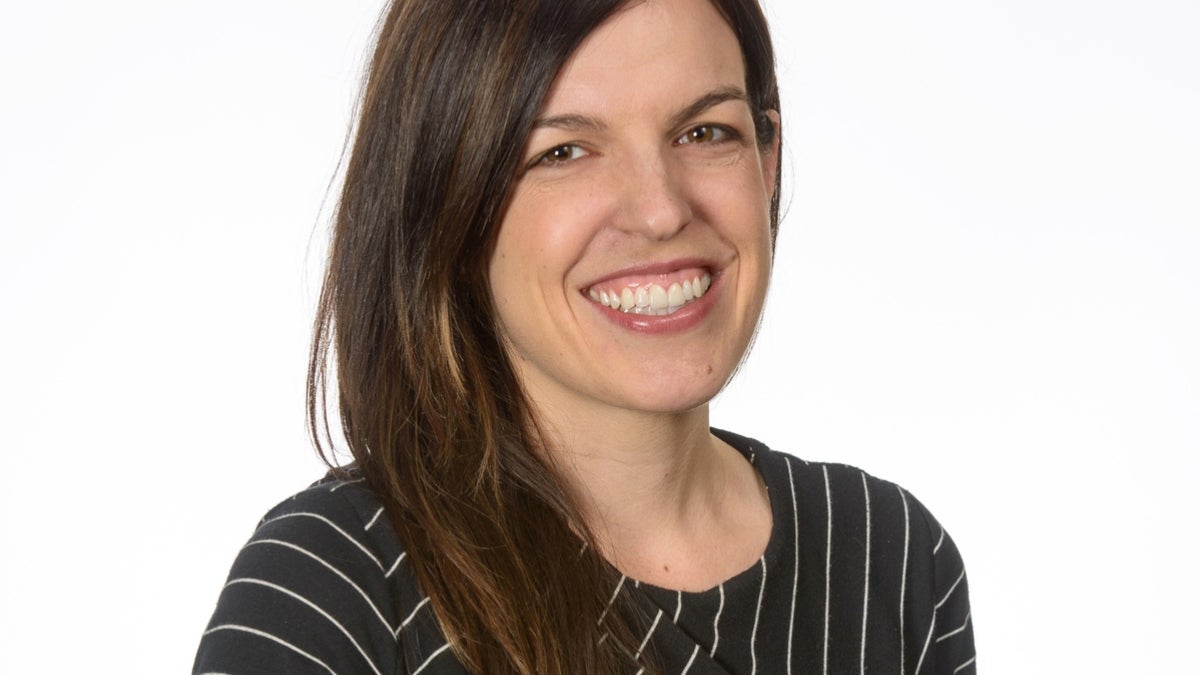Holistic care for those facing end-of-life

Erin Kube, outstanding graduate student in the College of Letters and Sciences for 2016, discovered a passion for working with geriatric patients who are managing terminal and chronic medical diagnoses. Kube is pursuing a postdoctoral fellowship in geropsychology with the George E. Wahlen Veterans Affairs Salt Lake City Health Care System for next year, and then will obtain board certification in that specialty field.
Editor's note: This is part of a series of profiles for spring 2016 commencement. See the rest here.
Erin Kube, who has completed the doctorate in counseling psychology, is being recognized as the Outstanding Graduate Student for 2016 in the College of Letters and Sciences.
Originally from Arlington, Virginia, Kube says she chose to attend ASU because of its commitment to innovation and diversity. She chose the doctoral program in counseling psychology, specifically, because of the expertise of the faculty and the exceptional clinical training here — as well as for the opportunities she would have for teaching, leadership and research.
Along the way, she also found her true passions in this field.
Kube shared with ASU Now some reflections about her experiences as a doctoral student in the College of Letters and Sciences.
Question: Did you have an “aha” moment, when you realized you wanted to join the field you’re in or take your studies in a particular direction?
Answer: My department (Counseling and Counseling Psychology) has strong community connections for training in health psychology. My experience for two years at Banner University Medical Center in Phoenix prepared me to work with complex medical patients. I realized my passion for working within health care as a consultant to medical providers. During my internship year, my training within the VA Hospice and Palliative Care Unit and Home-Based Primary Care team helped me realize my passion for working with geriatric patients managing terminal and chronic medical diagnoses.
Q: What’s something you learned while at ASU — in the classroom or otherwise — that surprised you, that changed your perspective?
A: My department placed a strong emphasis on diversity in clinical care, which has prepared me to function on interdisciplinary medical teams and provide holistic case conceptualizations in both treatment planning and coordination of care. I learned how to incorporate multicultural sensitivity into my clinical case conceptualizations and my treatment delivery. I also learned how to marry research with practice and provide evidence-based treatment to my patients.
Q: What are your plans after graduation?
A: I will be pursuing a postdoctoral fellowship in geropsychology at the George E. Wahlen Veterans Affairs Salt Lake City Health Care System for the 2016-2017 year. I intend to get board certified soon thereafter as a geropsychologist. In the longer term, I would like to get more involved with psychology leadership and contribute to policy-making for older adults in health-care settings.
Q: If someone gave you $40 million to solve one problem on our planet, what would you tackle?
A: At this point, and based on my recent clinical observations, I would like to improve hospice and palliative clinical care programming for LGBTQ individuals. I would like to train health-care providers to consider the role of diversity in treatment planning and coordination of care, particularly in the face of a terminal illness.
Q: Any advice for those still in school?
A: Consider being active in ASU’s Graduate Professional Student Association. My involvement in GPSA provided me with an opportunity to gain leadership experience and to collaborate with other young professionals across multiple disciplines. This helped me to refine my professional identity and gain more confidence that transferred to working in health-care settings with multidisciplinary providers.
More Science and technology

ASU postdoctoral researcher leads initiative to support graduate student mental health
Olivia Davis had firsthand experience with anxiety and OCD before she entered grad school. Then, during the pandemic and as a…

ASU graduate student researching interplay between family dynamics, ADHD
The symptoms of attention deficit hyperactivity disorder (ADHD) — which include daydreaming, making careless mistakes or taking…

Will this antibiotic work? ASU scientists develop rapid bacterial tests
Bacteria multiply at an astonishing rate, sometimes doubling in number in under four minutes. Imagine a doctor faced with a…